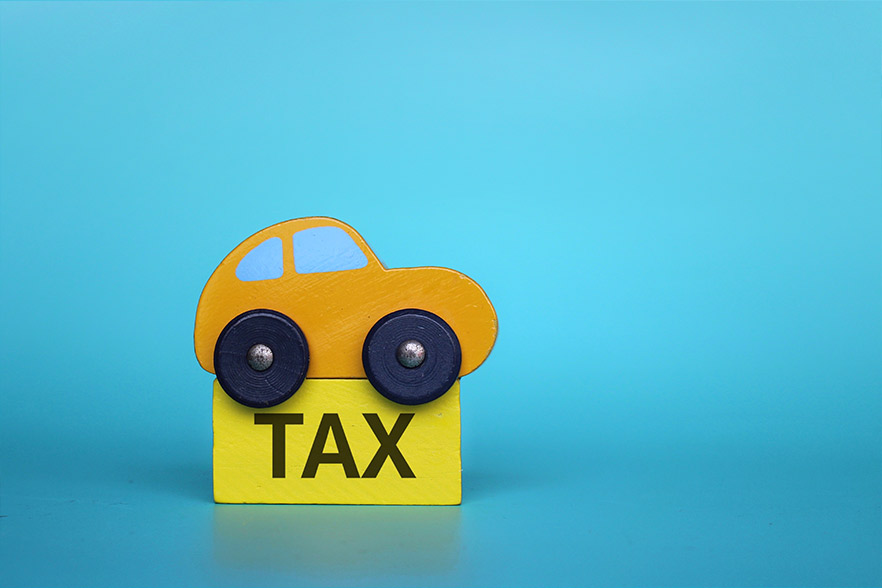
Recent Blog
Arrange a FREE Consultation Call and Let’s Discuss Your Goals!
The way the UK treats tax on electric cars is about to change and it’s big news for EV owners, especially those planning to buy a new electric vehicle after 1 April 2025. While electric cars have enjoyed generous road tax exemptions for years, new legislation means that electric car drivers will soon need to pay Vehicle excise duty (VED) just like drivers of petrol or diesel cars. Governments are introducing these changes to make sure that all vehicles contribute to road infrastructure and environmental goals. The changes will affect both new and existing cars, with tax obligations depending on if cars were registered before or after the new rules take effect. Thus, let an expert, such as MMBA accountants experts, handle the EV tax confusion.
Here’s everything you need to know about electric car road tax from 2025 onwards, including how it’s calculated, who is exempt, and how paying road tax will work to make sure compliance and avoid fines.
Table of Contents
Introduction to Electric Car Taxation
Electric car taxation in the UK has seen major changes in recent years, especially with the introduction of Vehicle Excise Duty (VED) for electric vehicles (EVs) starting in April 2025. Previously, electric cars were largely exempt from paying vehicle excise duty, making them an attractive option for drivers looking to save money on car tax. However, as the number of electric vehicles on UK roads continues to rise, the government has updated its approach to ensure all cars and vehicles contribute fairly to road maintenance and public funds.
From April 2025, electric car owners will need to pay vehicle excise duty VED, just like drivers of petrol and diesel cars. This move is designed to create a level playing field and to address the reduction in fuel duty revenue as more drivers switch to electric cars. The new rules apply to all types of electric vehicles, including new EVs and those already registered, so it’s important for both current and prospective EV owners to understand how these changes affect them.
If you’re considering buying an electric car or already own one, staying informed about the latest vehicle excise duty rates and regulations will help you avoid unexpected costs and ensure your vehicle remains properly taxed under the new system.
What Is Vehicle Excise Duty (VED)?
Vehicle excise duty—commonly known as car tax, road tax, or vehicle tax—is a tax imposed on vehicles using UK roads. The amount you pay depends on factors like:
- CO2 emissions
- Engine size
- Fuel type (e.g. petrol, diesel, electric, or hybrid cars)
- List price of the car
- When the vehicle was registered
Hybrid cars still produce CO2 emissions because they use petrol or diesel engines, and this affects their road tax rates, especially with upcoming policy changes in 2025.
Historically, electric vehicles (EVs) were exempt from road tax because they produce zero tailpipe emissions. But from 1 April 2025, that changes.
Registration and Tax Implications for EV Owners
When you purchase an electric vehicle, registering it correctly and understanding the associated tax responsibilities is essential. The first step for new EV owners is to obtain a Vehicle Registration Certificate (V5C), which officially records your car with the DVLA. Once your electric vehicle is registered, you must ensure it is taxed according to the latest vehicle excise duty (VED) rules.
For EVs registered on or after 1 April 2025, the standard rate of VED will apply, currently set at £195 per year. If your electric vehicle has a list price over £40,000, you’ll also need to pay the expensive car supplement, which adds an extra £425 per year for five years. These changes mean that all EV owners, regardless of when their car was registered, need to be aware of the new tax rates and how they apply to their vehicle.
Failing to pay the correct amount of vehicle excise duty can result in fines or penalties, so it’s important to check your car’s list price and registration date to determine your tax obligations. By staying up to date with the latest VED requirements, EV owners can ensure their vehicles are properly taxed and avoid any unexpected costs.
What’s Changing from April 2025?
From April 2025, new electric cars, and even existing ones, will start to be taxed. The government plans to make the tax system “fairer” by ensuring all cars using public roads contribute, regardless of emissions.
Here’s a breakdown of the changes:
- New EVs registered on or after 1 April 2025 will pay the lowest first year rate of vehicle excise duty, currently £10 (this may change by 2025).
- From the second year onwards, owners will pay the standard annual rate, which is currently £190/year. The standard annual rate applies from the second year onwards.
- EVs with a list price over £40,000 will face the expensive car supplement, which adds an extra £390/year, paid annually from the second to the sixth year of registration (yes, even for EVs).
- Hybrid cars and alternative fuel vehicles will also lose the £10 discount they previously enjoyed on the standard rate.
- If your EV was registered between 1 March 2001 and 30 March 2017, your tax rate will be based on emissions, meaning older low emission cars may still pay less than others.
How Much Will Electric Vehicle Tax Cost?
Here’s how EV road tax will be applied from 2025:
| Vehicle Type | Registered | First Year VED | Standard Rate | Expensive Car Supplement |
| New EVs | After 1 April 2025 | £10 | £190/year | £390/year for 5 years |
| Existing EVs | Before 1 April 2025 | £0 (till 2025) | £190/year | £390 if list price > £40,000 |
| Plug-in Hybrid Cars | Any date | Based on emissions | £190/year | £390 if list price > £40,000 |
It’s worth noting that although this may seem like a burden to ev owners, the fuel costs for electric cars remain significantly lower than petrol or diesel alternatives. Electric vehicles also have fewer moving parts, which can reduce maintenance costs compared to petrol or diesel cars.
Low Emission Cars and Tax Benefits
Choosing a low emission car, such as an electric vehicle or hybrid car, comes with a range of tax benefits that can make ownership more affordable. Electric vehicles are exempt from fuel duty and have historically enjoyed lower vehicle excise duty (VED) rates compared to petrol and diesel cars. Even with the upcoming changes, EVs and other low emission cars still offer significant savings on car tax and running costs.
For company car drivers, electric vehicles and low emission cars attract much lower company car tax rates, making them a smart choice for businesses and employees alike. The UK government also supports the adoption of low emission vehicles through incentives like enhanced capital allowances and reduced benefit-in-kind tax rates, helping to lower the overall cost of switching to cleaner cars.
By opting for a low emission vehicle, drivers can reduce their environmental impact while taking advantage of government-backed tax breaks and lower running costs. If you’re looking to save money on vehicle excise duty, cut fuel expenses, or benefit from company car incentives, low emission cars remain a compelling option for UK motorists.
Company Cars & EVs
EVs are also popular as company cars, thanks to lower Benefit-in-Kind (BiK) tax rates. While the VED applies separately, it’s important to factor both into your decision. Even with new car tax rules, EVs can still save businesses and employees money compared to traditional fuel cars.
How to Pay Vehicle Tax

Car tax can be paid in several ways:
- Online at the DVLA website
- At your local post office
- Through monthly direct debit
The easiest way to pay car tax is online. If you forget, you can be fined and your vehicle could be clamped. EV drivers, especially new ones, should be aware of these changes and budget accordingly.
Are Any Electric Vehicles Still Exempt?
Some electric vans, zero emission vans, and vehicles used by disabled people or for agricultural vehicles may still be exempt from paying VED or qualify for reduced rates. That said, most newly registered EVs won’t escape taxation after 1 April 2025.
You should always check your eligibility, especially if your vehicle falls under a niche category like:
- Private use only
- Registered between 1 April 2017 and 31 March 2025
- Qualifies as an agricultural vehicle or mobility scheme
If you’re planning to buy an EV soon, consider:
- If your vehicle will be registered between 1 April and later.
- The list price (to avoid the luxury supplement).
- The ongoing savings in fuel costs.
- If to pay online, at your local post office, or via monthly direct debit.
Will This Affect EV Adoption?
The shift in electric car road tax may slow down EV adoption in the short term, especially for buyers drawn in by the prospect of free road tax. However, the long-term savings like reduced fuel costs, fewer maintenance issues, and cleaner driving still make electric vehicles an attractive choice for most.
And with growing public charging infrastructure and better battery ranges, new EVs remain a practical solution for both city and motorway driving.
Conclusion
The UK’s vehicle excise duty VED policy is shifting gears and EV owners need to keep up. From 1 April 2025, electric car drivers will pay road tax, face the standard rate, and even the expensive car supplement if their vehicle is over the threshold.
But don’t let that discourage you. Even with these new charges, EVs still offer excellent value an especially in the face of rising petrol and diesel prices and climate responsibilities.
Frequently Asked Questions
Will electric cars still be exempt from road tax after 2025?
No, from 1 April 2025, all electric cars will begin to pay vehicle excise duty starting at £10 for the first year.
How is electric car tax calculated?
Car tax is calculated based on emission levels, list price, and date of registration. From 2025, EVs will follow the same rules as other cars.
Can I still pay electric car road tax at the post office?
Yes, ev road tax can be paid at your local post office, online, or via monthly direct debit.
Are hybrid cars taxed differently than full EVs?
Hybrid cars will no longer receive the £10 discount and will pay the standard rate like other cars.
Why are EVs being taxed now?
To make the system more fair and sustainable, especially as more people transition from petrol and diesel to low emission vehicles.


